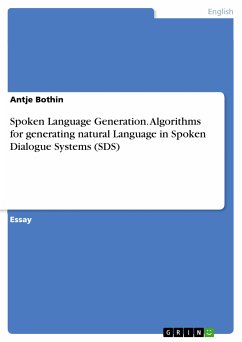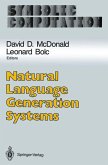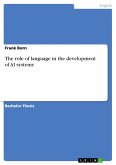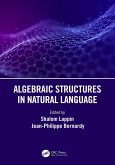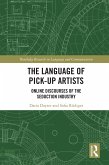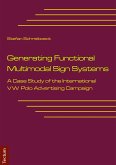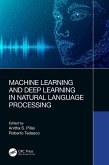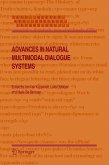Essay from the year 2007 in the subject English Language and Literature Studies - Linguistics, grade: 1,0 (100%), University of Sheffield, language: English, abstract: This essay describes several algorithms for generating natural language in spoken dialogue systems (SDS). Natural language generation (NLG) deals with the transformation of semantic representations to well-formed utterances. As speech significantly differs from written documents it is necessary to develop different approaches for its generation than for text. SDS should produce easily understandable, human-like sentences in order to increase the facility of information retrieval as well as the convenience of use for humans. The purpose of this essay is to compare template-based (e.g. GENESIS and GENESIS-II), rule-based, and hybrid linguistic / statistical (e.g. HALogen, Acorn, Communicator, NLG [1 - 4], SPoT and SPaRKy) methods and to highlight their strengths and weaknesses. This evaluation may be helpful when creating new SDS in practice. However, the final decision what algorithm to use depends on the task and the users' needs as well as the time, money, and effort available for the system's development.
Dieser Download kann aus rechtlichen Gründen nur mit Rechnungsadresse in A, B, BG, CY, CZ, D, DK, EW, E, FIN, F, GR, HR, H, IRL, I, LT, L, LR, M, NL, PL, P, R, S, SLO, SK ausgeliefert werden.

